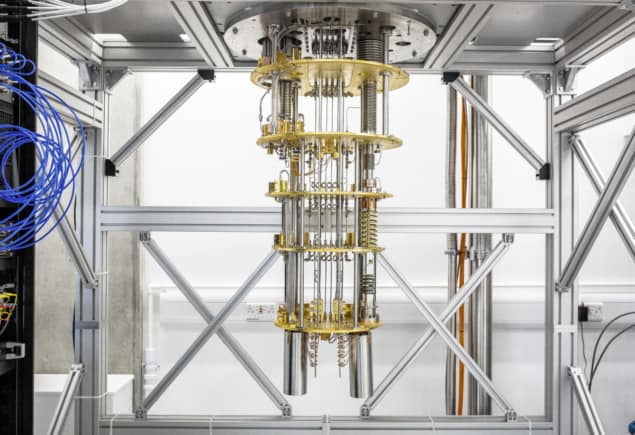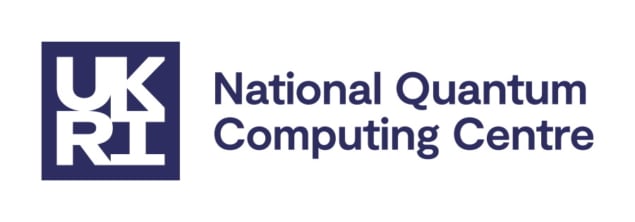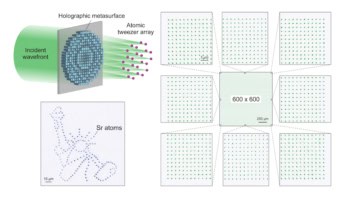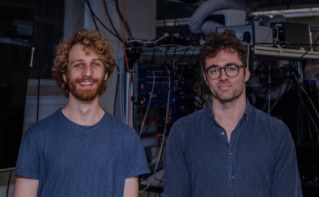The UK’s National Quantum Computing Centre has launched the SparQ applications discovery programme to help organizations explore the potential of use cases for quantum computing

The first practical demonstrators of quantum computers have fuelled speculation about the future impact this emerging technology will have for both scientific discovery and commercial exploitation. Large-scale machines that can correct for the errors in quantum systems certainly have the potential to disrupt business models and drive innovation, but such fault-tolerant quantum computers are not likely to be realized at scale for at least another decade. The big question for companies right now is how much time and resource to invest in such a game-changing technology, but one that is still at such an exploratory stage.
“Early adopters stand to gain expertise in quantum computing, allowing them to prepare their organizations for exploiting its potential ahead of more widespread adoption,” said Simon Plant, deputy director for innovation at the UK’s National Quantum Computing Centre (NQCC), which was launched in 2020 to accelerate the development and adoption of quantum computing in the UK. “But we understand that it is a long-term endeavour, and we want to support industry by working with them to explore solutions to real-world problems.”
Plant was speaking at an event in May that was organized by the NQCC to bring together the suppliers, technology developers and end users that make up the UK’s rapidly growing quantum ecosystem. “The NQCC has really emphasized that we need a quantum-ready economy,” said Sir Peter Knight, who has spearheaded the UK’s wide-ranging National Quantum Technologies Programme since its launch in 2014. “It has been a real engine for bringing in both quantum enthusiasts and people who don’t yet know much about quantum computers or their potential to transform their world.”
To find out how different organizations are currently engaging with quantum technologies, the professional services firm EY, working in collaboration with the NQCC, commissioned a survey of senior executives across all major industry sectors. Of the 500 companies who fully completed the survey, 97% believe that quantum computing will have a significant impact on the UK economy within the next five years. Half of them think that quantum computers will play an important role in their sector, with a third actively engaged in strategic planning for a quantum future. “The data show a range of positions being taken by different organizations, which is what you would expect for a nascent and emerging technology,” commented Harvey Lewis, a technology specialist at EY. “There is this quite interesting picture of great expectation but not yet a massive degree of engagement and activity associated with that expectation.”
Lewis explained that the survey team originally reached out to more than 1500 organizations, of which one-third had sufficient knowledge of quantum technologies to answer the initial screening questions and complete the full survey. “Quantum computing is a largely unknown quantity in business,” he said. “We were keen to understand what our clients and other organizations were thinking and doing in this space, and we worked hard to make sure we were speaking to people who could provide us with trusted and informative responses.”
Business benefits
Some companies are further along their quantum journey than others. At telecoms provider BT, for example, experiments in quantum technologies began in the 1990s, when researcher Paul Townsend built quantum key distribution systems and ran them over optical fibre for the first time. When the first quantum computers started to emerge, the initial concern at BT was that future machines might be able to hack even the most secure communications channels. But interest also grew in using quantum computing to tackle optimization problems, such as maximizing the performance of dynamic telecoms networks or improving their resilience, and as a result BT has been investigating some initial use cases to see where quantum technologies might offer an advantage.
In the QCAPS project, for example, which ran in 2017/18, researchers at BT worked with quantum start-ups and academics to explore whether quantum algorithms and hybrid quantum–classical solutions could help to optimize planning and scheduling tasks in telecoms networks. While results from this early study were promising, some questions could not be answered without access to larger quantum processors. Now BT is involved an ambitious £9m project to create a blueprint for a “Quantum Data Centre of the Future”. Led by ORCA Computing and involving 12 other partners from industry and academia, the aim is to demonstrate a fully integrated data centre with rack-mountable quantum processors that can be connected together using quantum-safe communications links. “This will enable both BT and our partners to evolve our systems, both hardware and software, to the next level,” commented BT researcher Cathy White.
Other companies have also started to evaluate the potential of quantum computers for specific applications. At the NQCC event, Leigh Lapworth from Rolls Royce described early tests of different quantum algorithms for computational fluid dynamics (CFD), which the company has been investigating as part of a collaborative project funded by Innovate UK and involving 11 partners, including quantum start-ups Universal Quantum and Riverlane. And Ross Williams from dunnhumby, a customer data-science company that works with retail giants like Tesco and Walmart, explained how he and his colleague David Hoyle have been investigating whether quantum computers might be able to solve common optimization problems, such as developing a promotional calendar for different product lines.
One of the key challenges for these early investigations has been to identify use cases that can be addressed by the current generation of quantum computers (so-called Noisy Intermediate Scale Quantum, or NISQ machines), which are too noisy and small-scale to deliver any advantage over classical processors. “Existing NISQ-era machines can only address niche applications that can be scaled down in some way,” commented Lapworth. “I’m not convinced that NISQ machines will have a broad-based benefit, and one of the reasons that we are focusing on CFD in our current project is to look forward to the fault-tolerant era when there will be a real quantum advantage.”
Williams agrees that businesses need to be realistic about the capabilities of current quantum-computing platforms, but he contends that experimenting with existing technologies offers an important learning opportunity. “Some people are saying that NISQ machines aren’t useful, while others are suggesting they will deliver a quantum advantage for businesses within the next year or two,” he said. “Somewhere in the middle is the likely true ground. NISQ devices will provide useful learning demonstrators, on what will likely be a continual path towards fault-tolerant quantum computers. You can’t just work with pen and paper for the next 10 years, you need to be trying things out on the real hardware now.”
Exploration yields understanding
The NQCC aims to support that experimentation through a new applications discovery programme called SparQ. “SparQ will give end users a chance to work with quantum algorithms and hardware on a problem that’s relevant to their industry,” said Knight. “For companies that don’t have access to quantum experts, or even to the hardware, SparQ offers a way to test the technology out for themselves and to understand how important it could be for their business.”
The framework of the SparQ programme emerged from a series of one-to-one conversations with experts from different industry sectors, as well as a user-engagement workshop that allowed the NQCC team to present and capture feedback on its initial ideas. The result is a multi-faceted approach that combines skills development with hands-on experience of using quantum algorithms and hardware.
The first key element is an online learning platform designed to help graduate students and early-career professionals to find out how to code a quantum computer, with the NQCC covering the costs for two people from each organization to complete the training. The second is a series of open workshops, such as a two-day hackathon in July that will challenge students from different disciplines to write and execute quantum algorithms to solve problems set by end users. “The hackathon will bring together all the key elements of SparQ, but on a smaller scale,” explained Chiara Decaroli, the NQCC’s education and outreach officer. “It will connect together people who have experience of quantum computers with those who have deep knowledge of their domain.”
Perhaps most significant, however, is funding for a series of collaborative projects aimed at demonstrating specific applications for today’s quantum computers. Following a call for proposals in the autumn, for each successful bid the NQCC will first work with the project team to analyse the use case, assess the requirements, and determine whether the application can be usefully tackled with current technologies. “The next stage would be to identify appropriate algorithms or develop new ones, and then run them on a physical quantum computer,” says Decaroli. “We can then benchmark the results against classical solutions and potentially across different quantum-computing platforms.”
One crucial partner in the SparQ programme is Oxford Quantum Circuits (OQC), the only UK company to offer cloud-based access to a quantum computer. Its latest eight-qubit processor, named “Lucy” after the pioneering quantum physicist Lucy Mensing, was released on Amazon Web Services in February this year. “We are looking forward to working with end users in different industry sectors to provide access to our hardware,” commented Ilana Wisby, CEO of OQC. “Our infrastructure is based in the UK, which ensures data security for government agencies and commercial organizations that have data residency and sovereignty requirements.”
Collaborating with quantum start-ups and the academic sector has certainly helped BT, Rolls Royce and dunnhumby to fast-track their early exploration of quantum technologies, and one of the most successful strategies for White and Williams has been to fund a relevant PhD project. “Sponsoring a student has provided us with deep insights we wouldn’t have got any other way,” said White. Williams agrees: “Partnering with academia, particularly sponsoring a PhD project, is a great way to inject some technical expertise into your company. Alongside the value of the actual research, it’s really helpful to discuss our ideas with them and to get their thoughts on whether the latest developments in the field are important or not.”
In this exploratory stage of the technology, the companies at the NQCC event also emphasized the importance of sharing information and experiences with both technology developers and other businesses in different industry sectors. “It’s great to have a community of end users at a meeting like this,” said Williams. “It generates energy from seeing what other people are doing, allows us to think about the collective lessons, and helps us to distinguish between hype and reality.”




